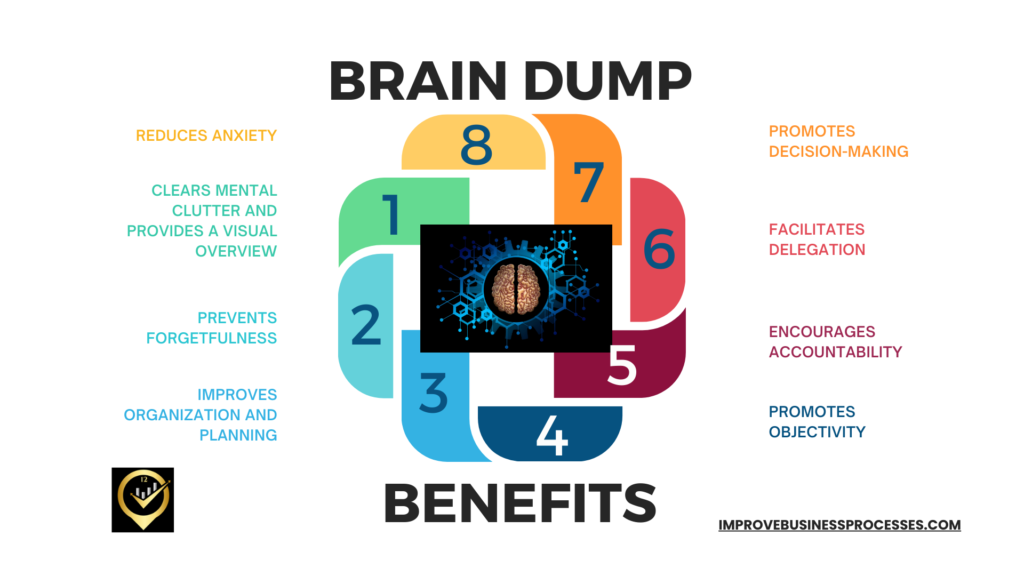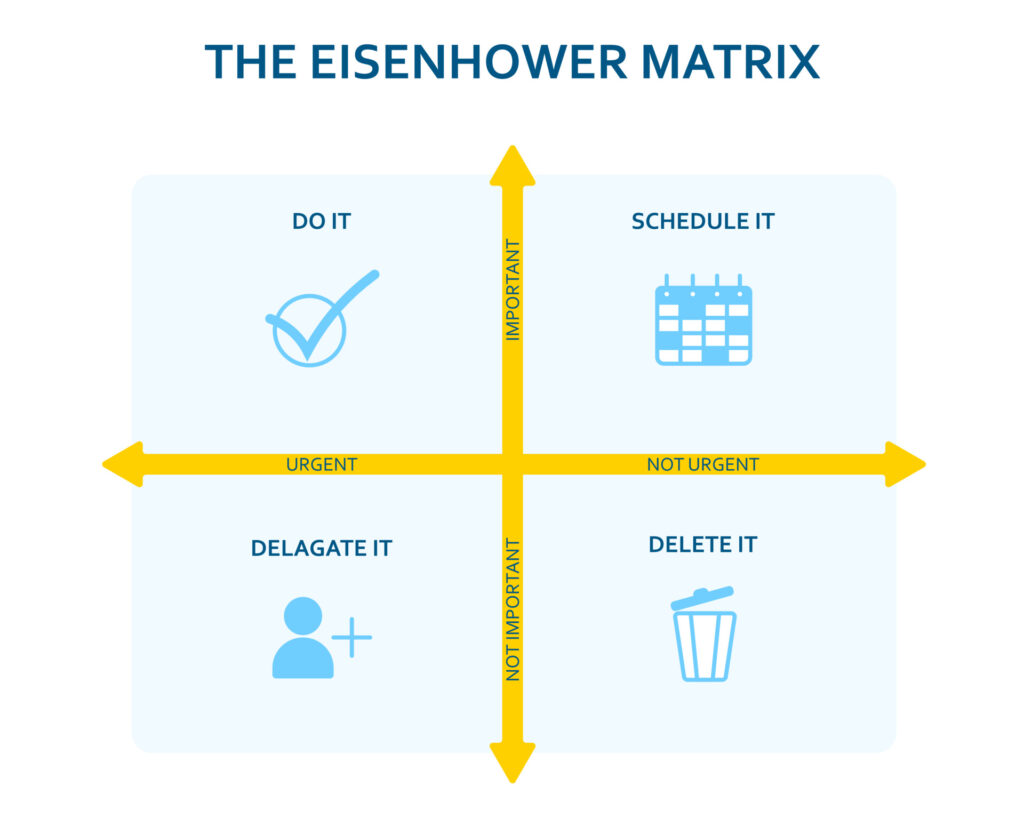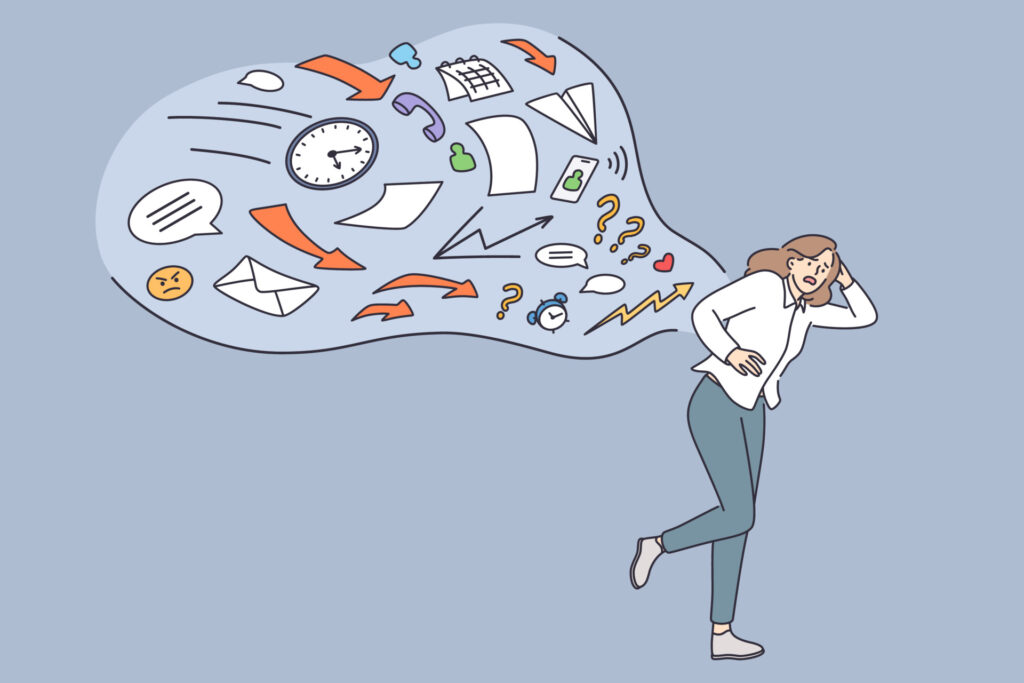Keeping everything in your head, also known as “mental clutter,” is a recipe for feeling overwhelmed all the time. Apart from not being good for your business, it can also affect your mental health.
Mental clutter “murkys” the waters for you as a business owner because it increases stress, reduces productivity and impairs decision making among several other disadvantages.
This article reviews the disadvantages of mental clutter and explores how to free up internal head space.
Drawbacks of Mental Clutter
These can be grouped into two – limited cognitive capacity of the brain, and the effects of this limitation
Limited Cognitive Capacity of the Brain
The human brain has a finite capacity for processing and remembering information. When you try to store every task, deadline, idea, and detail in your head, you quickly reach the limits of your cognitive capacity.
This can lead to mental fatigue and difficulty concentrating on essential tasks.
The Effects of the Limitation of Cognitive Capacity
Risk of Forgetfulness and Lack of Organization
Even with the best intentions, relying solely on your memory can lead to forgetfulness. Important details may slip through the cracks, resulting in missed opportunities, deadlines, or commitments.
Keeping everything in your head usually means there is no structured system for managing tasks and information. Without a clear organizational framework, it becomes challenging to prioritize, plan, and execute tasks efficiently.
Poor Time Management
Without an organized system for managing tasks and deadlines, you may waste time on less important activities while neglecting critical priorities.
Reduced Productivity
Overwhelm from mental clutter can decrease your overall productivity. You may find it difficult to focus on tasks, maintain your energy and motivation, or complete projects in a timely manner.
Increased Stress and Anxiety
Trying to remember everything can create a constant background of stress and anxiety. The fear of forgetting something important or missing a deadline can contribute to a sense of overwhelm and unease.
Impaired Problem-Solving
Effective problem-solving often requires a clear and organized approach. Mental clutter can hinder your ability to analyze issues, generate solutions, and make informed choices.
Inefficient Decision Making and Delegation Issues When Feeling Overwhelmed
When your mind is cluttered with too much information, it can slow down your decision-making process. You may struggle to make clear and timely decisions because you are constantly sifting through mental clutter.
Many entrepreneurs and business owners who try to keep everything in their heads may feel that no one else can handle the tasks as well as they can, and they therefore struggle to delegate effectively. This increases their workload and often creates overwhelm.
Increased Risk of Burnout
Over time, stress and overwhelm resulting from mental clutter can lead to burnout. This can have serious physical and mental health consequences, and also negatively impact the success of your business.

Get Started Out of Feeling Overwhelmed All the Time – Dump it all on Paper
A simple, yet effective way to get started addressing the problem of overwhelm is to dump everything on paper.
The process involves writing down everything that is on your mind, all the tasks you need to complete, and any other information or ideas that are cluttering your mental space.
This is truly a powerful and effective way to start on the road out of overwhelm because it helps you externalize your thoughts, tasks, and concerns. Here’s why it’s such a valuable approach:
Why a Brain Dump is Valuable When Feeling Overwhelmed
Clears Mental Clutter and Provides a Visual Overview: When you have a lot on your mind, it can create mental clutter that makes it difficult to think clearly and make decisions. By transferring these thoughts onto paper, you free up mental space and reduce cognitive load.
Seeing everything written down in one place provides a visual overview of your responsibilities, tasks, and concerns. This can help you gain a better understanding of the scope of what you’re dealing with.
Prevents Forgetfulness: When you rely solely on your memory to keep track of tasks and commitments, you’re more likely to forget important details. Writing them down ensures that nothing gets overlooked.
Improves Organization and Planning: Once everything is on paper, you can start organizing your thoughts and tasks. You can categorize them, set priorities, and create a structured plan for addressing them.
With everything on paper, you can begin to create a concrete plan of action. This might involve setting specific goals, breaking tasks into smaller steps, and establishing deadlines.
Promotes Objectivity: Writing things down allows you to view your thoughts and tasks objectively. It’s easier to assess their importance and prioritize when they’re in a tangible form.
Encourages Accountability: When tasks and commitments are documented, you have a record of what needs to be done. This can help you hold yourself accountable and track your progress.
Facilitates Delegation: If you are overwhelmed with tasks, seeing them on paper can help you identify which ones can be delegated to others such as team members or external partners.
Promotes Decision-Making: With a clear list of tasks and concerns, you can make informed decisions about what needs to first be addressed and what can wait
Reduces Anxiety: Overwhelm often leads to anxiety and stress. Externalizing your concerns can provide a sense of relief and control, reducing the emotional burden.
How to Conduct a Brain Dump
To effectively “put it all on paper,” you can start with a brain dump session. Find a quiet and comfortable place, grab a notebook, or use a digital note-taking app, and write down everything that comes to your mind.

All those “to-do’s” – both business and personal. Nothing is too small to be exempt. If it comes to mind, just put it down! Since the the goal is to capture everything, do not worry about organizing or prioritizing at this stage, because doing so will hinder the process.
Once you have completed the brain dump, you can then begin the careful process of organizing, prioritizing, and creating a plan of action.
This might involve categorizing tasks, setting deadlines, and breaking larger goals into smaller, manageable steps. There are tools such as the Eisenhower matrix that you can use. It categorizes tasks by urgency and importance.
Overall, this simple yet powerful technique can be a critical first step in regaining control, reducing overwhelm, and setting yourself on a path toward greater productivity and peace of mind.
Conclusion – Feeling Overwhelmed all the Time
To stop feeling overwhelmed all the time and increase efficiency, it is necessary to adopt organized systems for managing tasks, information, and responsibilities.
This can include using to-do lists, project management software, calendars, and delegation strategies.
By externalizing and structuring information and tasks, you free up mental space and reduce the cognitive load, making it easier to focus, prioritize, and maintain a sense of control in your business and personal life.
Related Articles:
- How To Stop Being Overwhelmed – Essential Strategies
- Why a Clean Workspace is Important – Lessons from a Clutter Story
- What are the Tell-Tale Signs of Being Overwhelmed?
- Learn Ways to Manage Time Effectively – An Important Skill

